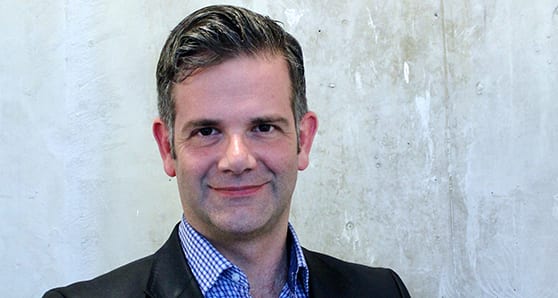Mark Patterson is executive director of Magnet at Ryerson University.

Mark Patterson
What is Magnet and what does it do?
Patterson: Magnet is a digital social innovation platform, founded at Ryerson University, with a mission to accelerate inclusive economic growth across Canada by advancing careers, businesses and communities.
Engaging employers, employment service providers, businesses and job seekers through a network of over 300 partners and over 85 post-secondary institutions across Canada, the Magnet platform uses intelligent matching technology to address unemployment and underemployment, connecting people, businesses and organizations to opportunity.
One of the key pieces of functionality Magnet is now rolling out across Canada is Outcome Campus Connect, created in partnership with Orbis Communications, an online platform that connects all types of businesses with the next generation of talent. With one simple job posting, businesses can reach students and new grads at university and college job boards across Canada. Employers can post their work integrated learning opportunities such as co-op placements, internships and field placements directly to students, through the Outcome Campus Connect functionality in the Magnet platform.
Magnet is working with employers of all sizes to post jobs targeted at Canadian post-secondary students for the upcoming 2019-20 recruitment cycle. Canadian employers, from small to large size, in turn see many benefits since the Magnet platform supports both recruitment and reporting. Outcome Campus Connect allows employers to push job postings to students out to multiple schools job boards across Canada, in one action.
What’s the Future Skills Centre and what’s its purpose?
Patterson: Launched on Feb. 14, 2019, the Future Skills Centre is a forward-thinking research centre with a focus on how to best prepare Canadians today for workforce opportunities of the future. Magnet provides the digital infrastructure for the Future Skills Centre
The centre’s mandate is to work with stakeholders across the country to develop, test, and evaluate innovative approaches to skills development with the goal of helping diverse Canadians gain the skills they need to adapt and succeed in the workforce.
Half of the centre’s funding is targeted towards addressing the needs of disadvantaged and underrepresented groups, including the under- and unemployed, women, youth, Indigenous people, newcomers, racialized people, persons with disabilities, veterans, and people from rural, remote and northern communities.
To date, the centre has committed over $19 million towards 16 innovation projects, affecting thousands of people across Canada. In Calgary, the Future Skills Centre is investing almost $1.5 million over two years in EDGE UP, a project led by Calgary Economic Development and a consortium of post-secondary and private sector partners. They will collaborate to design, implement and evaluate a digital up-skilling pilot project with the goal of transitioning displaced mid-career Calgary energy sector workers to high-growth technology opportunities.
How can displaced energy workers find jobs in other sectors of the economy?
Patterson: Digital competencies are now required across all sectors. With Calgary rapidly becoming a hub for emerging technologies, extensive tech employment opportunities are available. Energy workers can use the skills matching platform calgaryupskill.ca to learn about which of their skills match these new careers and which skills they need to develop to fill the gap.
We recently held an event with Calgary Economic Development. One of the many things the organization does is work with training institutions to support new program development and initiatives that will get displaced energy professionals the training required to transition into in-demand digital and tech-based careers.
Jeanette Sutherland, with Calgary Economic Development, leads a program called EDGE Up, which is a partnership-driven, short-duration skills development solution for mid-career workers from the energy sector looking for training in high-demand, high-growth technology opportunities. The program is in partnership with the Information and Communications Technology Council (ICTC), the University of Calgary Continuing Education, SAIT, Bow Valley College and Riipen and is funded by an almost $1.5-million investment from the Future Skills Centre.
How big of a need is there for Calgary to diversify its economy?
Patterson: Over the last two decades, Calgary has had one of the highest rates of economic and population growth in North America. Our economic output, driven primarily by a globally significant energy industry, has effectively doubled. Today, an unprecedented wave of automation and digitization is disrupting all aspects of the economy. This represents our greatest opportunity to apply innovation to ensure we are able to compete at a global level within our key industries. By embracing innovation and technology, and continuing to diversify into high-growth sectors, Calgary has the ability to impact major global issues, including hunger, health and well-being, energy security and environmental sustainability.
We envision Calgary as Canada’s destination for talent, a leading city with an experienced business-to-business innovation community, as well as the country’s most livable and most business-friendly city. Workforce issues are an ongoing worldwide challenge and preparing our people with skills for the new economy is critical. It is also a priority to ensure that all citizens have the ability to participate in a thriving economy and enjoy the benefits of a prosperous city.
What are the barriers for people in transferring their skills to other sectors?
Patterson: One of the major barriers is a lack of awareness of how an individual’s current skillset might align with new in-demand career opportunities. Calgary Economic Development, in partnership with ICTC, put together Mapping Calgary’s Digital Future Report, where they were able to identify how displaced energy professionals’ skillsets might align with the new opportunities in tech.
Another challenge is the fact that many individuals can’t afford the long-term training required to begin a new career. In an attempt to overcome this, Sutherland tells me Calgary Economic Development is working with post-secondary institutions and national entities to create short-term tech and digital training programs, such as the Future Skills Canada-funded EDGE UP, which allow individuals to receive the necessary training for in-demand career opportunities in as little as six months.
Interviewed by Mario Toneguzzi, a Troy Media business reporter based in Calgary.
The views, opinions and positions expressed by columnists and contributors are the author’s alone. They do not inherently or expressly reflect the views, opinions and/or positions of our publication.

